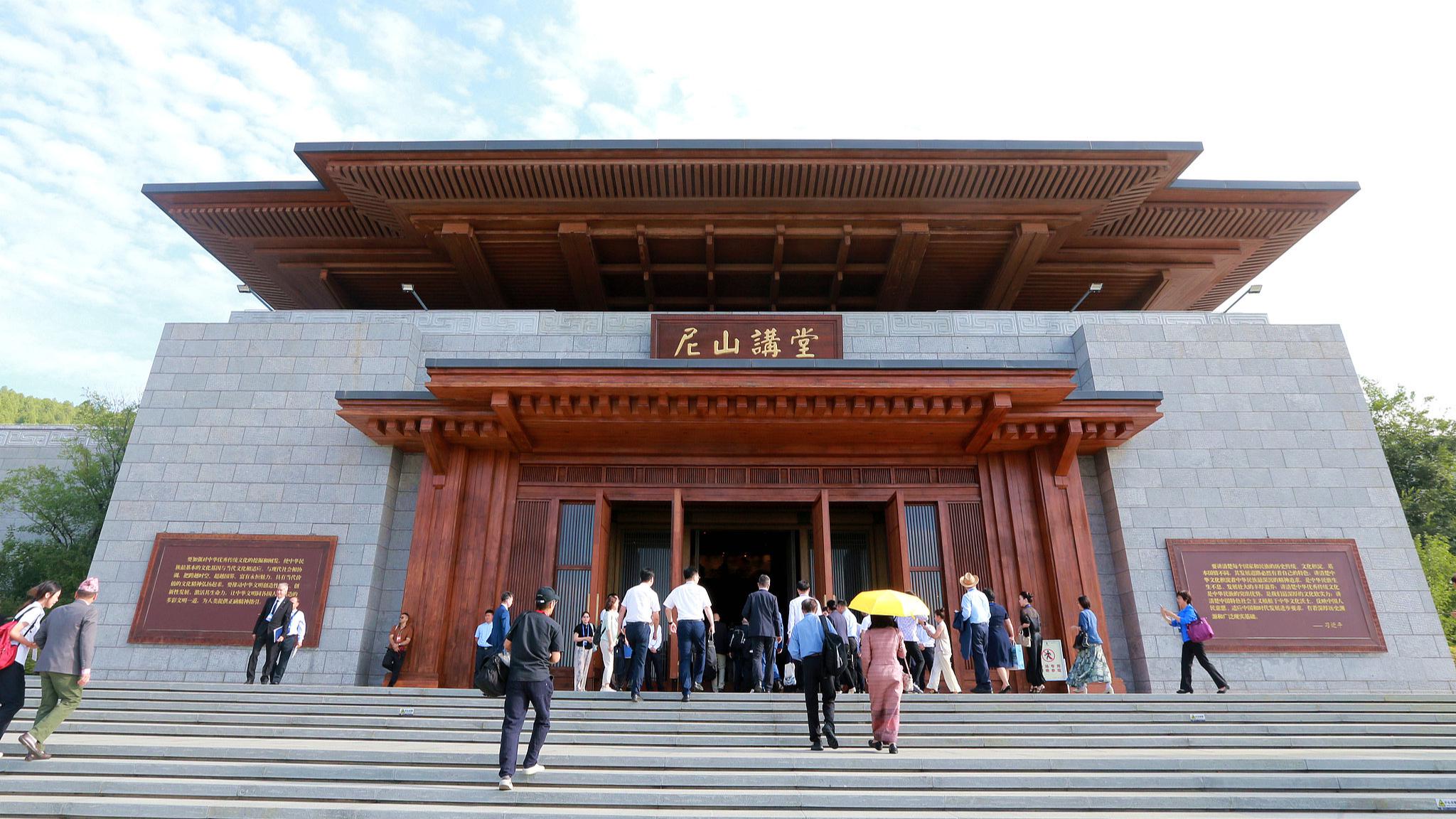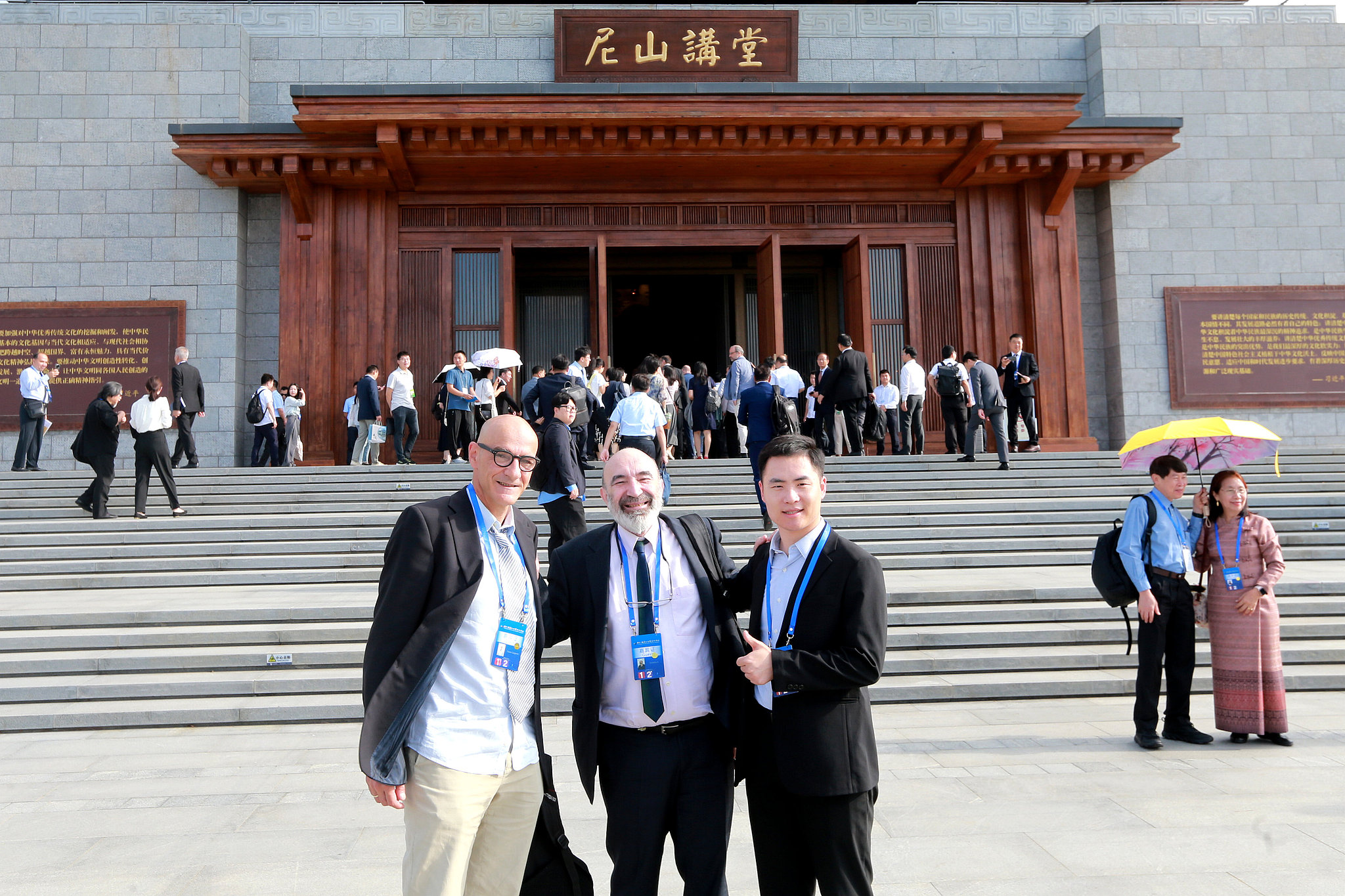
The 11th Nishan Forum on World Civilizations is held in Qufu, east China's Shandong Province, July 9, 2025. (Photo: VCG)
The 11th Nishan Forum on World Civilizations kicked off in Qufu, east China's Shandong Province, on Wednesday. Scholars and experts attending the forum have shared their insights on the interplay between cultural diversity and modernization.
Elaborating on cultural innovation in China and Europe, Riccardo Pozzo, a professor of history of philosophy at Tor Vergata University of Rome, told CGTN that Confucianism can provide valuable solutions to bridge traditional and modern issues and address contemporary problems.
"We can draw on tradition to propose ways to ensure the sustainable development of humanity in the 21st century, primarily by addressing the challenges of the green and the digital transformation," Pozzo said.
Speaking about China's cultural innovation, he said the country's current prosperity has made it possible for more people to experience traditional thought and culture in new ways.
In a special panel discussion themed "Ren and Li: Confucian Ethics for Global Governance," Steve Fuller, a fellow at the UK Academy of Social Sciences, said that artificial intelligence (AI) does not rob humanity of its creativity.
Instead, human creativity lies in reintegrating existing human expressions in new ways, he said, adding that human creativity often comes from a unified source or data foundation.
Fuller noted that AI then integrates human-created wisdom in novel ways, producing combinations of expression never seen before.

Guests pose for a group photo outside a lecture hall during the Nishan Forum on World Civilizations in Qufu, east China's Shandong Province, July 9, 2025. (Photo: VCG)
Kim Sung-kee, honorary professor at Sungkyunkwan University, said Confucian values are not only capable of serving as universal values for people in the 21st century, but their structural framework also aligns well with a system of life values.
Kim said the structure of the values, along with their views on nature, the universe and humanity, corresponds to the ethical value system of postmodern life.
During a special panel discussion themed "Confucian Education for Social Cohesion," Salome Nyambura, director of the Confucius Institute at Kenyatta University, said close people-to-people exchanges between China and Kenya have made more Kenyans interested in Confucianism.
Noting that more Chinese enterprises have entered Kenya, she said there is an increasing need for locals to learn the Chinese language for business, employment, and other purposes. She added that a large number of people in Kenya have taken an interest in learning Chinese over the past five years.


